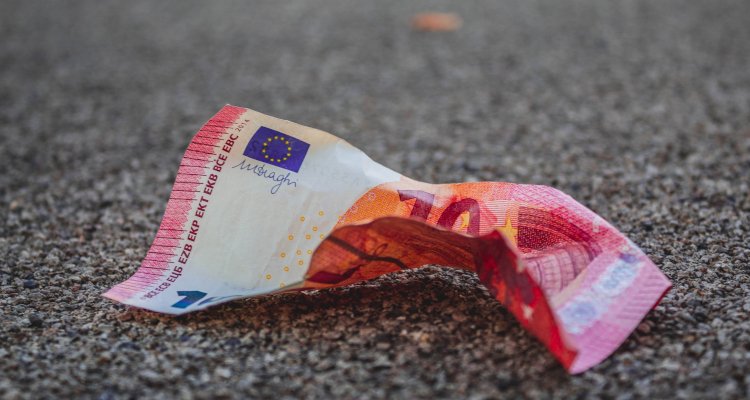Spotify Reportedly Preps €10-Per-Track Distributor Fine for Artificial Streams in Revamped Royalties System


A Spotify fraud fine of €10 per track is reportedly in the works for uploads that derive at least 90 percent of their streams from artificial sources. Photo Credit: Imelda
Last month, reports revealed that Spotify’s forthcoming compensation overhaul would include a fraud penalty designed to curb the prevalence of artificial plays. Now, new details about the charge, including which tracks it will affect, have emerged.
Additional information about the Spotify fraud penalty came to light in recently published pieces from outlets including Billboard. The Stockholm-headquartered streaming service itself has yet to publicly disclose the specifics of the overarching pivot, which will reportedly go live in Q1 2024 and cut off payments for the vast majority of on-platform songs.
And as we covered in October, another component of the royalties revamp is said to involve financial penalties for labels and distributors with tracks that are raking in compensation due to artificial streams. At the time, it was unclear which distributors the penalty would reach, how much they’d be made to cough up for infractions, and how exactly Spotify would pinpoint offending streams.
However, the mentioned Billboard piece, citing comments from “several distribution execs,” has identified possible answers to some of the questions. According to the report, when north of 90 percent of a song’s streams are found to be fraudulent, the appropriate label or distributor will be slapped with a €10 fine charged against future royalties.
Of course, ultra-popular major-label releases presumably benefit from some streams that could be classified as artificial. Moreover, the precise definition of “artificial streams” is decidedly important and must be clearly established; it wasn’t too long ago that Spotify removed millions of BTS plays that had resulted from diehard fans’ repeat listening.
But the 90 percent fraud threshold essentially ensures that the majors’ tracks and the lion’s share of indie-label uploads won’t be subject to penalties. Rather, it appears that songs made available for the sole purpose of gaming the system – a Swedish investigative report in September described streaming fraud as a key component of certain money-laundering operations – will face the brunt of the fines.
And at least based upon the currently available details, that means the likes of DistroKid, CD Baby, TuneCore, and the self-distributing Boomy will, in turn, grapple with the same fines. (Spotify, reportedly corralled by Universal Music, already cracked down on the latter earlier in 2023 because of alleged fake streams.)
Nevertheless, Andreea Gleeson, CEO of Believe’s TuneCore, has expressed a seemingly positive position on the penalty. Inversely, DistroKid head Philip Kaplan has reportedly pushed back against the proposal for reasons including the potential for third-party marketing firms to utilize fake streams without artist and label clients’ knowledge or consent.
Bigger picture, the previously noted 90 percent fraud threshold and €10 fine, like the annual 1,000 streams that songs will reportedly have to hit before they begin collecting Spotify royalties, will most likely change moving forward.
While the exact definition of artificial streams – besides the size of the window during which the authenticity of streams will be gauged – is significant, as highlighted, one wouldn’t have a difficult time arguing that Spotify should immediately pull tracks owing above 90 percent of their streams to fraud.
Evidently, though, the broader objective for the platform (and the majors that are driving reforms including the €10 fine) is halting such songs at the source as opposed to carefully policing uploads’ listening trends. Following its aforesaid Spotify dust-up, Boomy in October announced a collection of new verification and authentication measures.
Link to the source article – https://www.digitalmusicnews.com/2023/11/15/spotify-fraud-fine-artificial-streams/
Recommended for you
-
The ONE Smart Keyboard COLOR 61 Keys Piano Keyboard, Music Keyboard with 256 Timbres, 64 Polyphony, 2 Speakers, Built-in LED Lights and Free Apps (Blue)
$179,99 Buy From Amazon -
Novation Launch Control XL USB MIDI controller for Ableton Live with assignable controls
$159,99 Buy From Amazon -
MeloAudio USB C MIDI Cable, Type C to USB 2.0 MIDI Interface Cable for Samsung, Huawei Laptop, MacBook to Connect with Printer, Midi Controller, Midi Keyboard, Audio Interface and More (5FT)
$8,99 Buy From Amazon -
Kat Percussion KTMP1 Electronic Drum and Percussion Pad Sound Module, Black
$99,99 Buy From Amazon -
JAZZ GROOVES REAL- Large unique Essential Studio Samples/Loops/Grooves WAVE/Kontakt Library
$14,99 Buy From Amazon -
R&B Classic Vocals – Large authentic WAVE/Kontakt Samples/Loops Studio Library
$14,99 Buy From Amazon -
ADM Ukulele for Beginners Hawaiian Wood Ukelele Kit for Kids Adult Student Starter Professional Ukalelee Pack Bundle with Free Lessons Gig Bag Strap Nylon String Tuner (Brown, 21 Inch)
$39,99 Buy From Amazon -
Recording King RK-R20 Songster Banjo
$599,99 Buy From Amazon













Responses